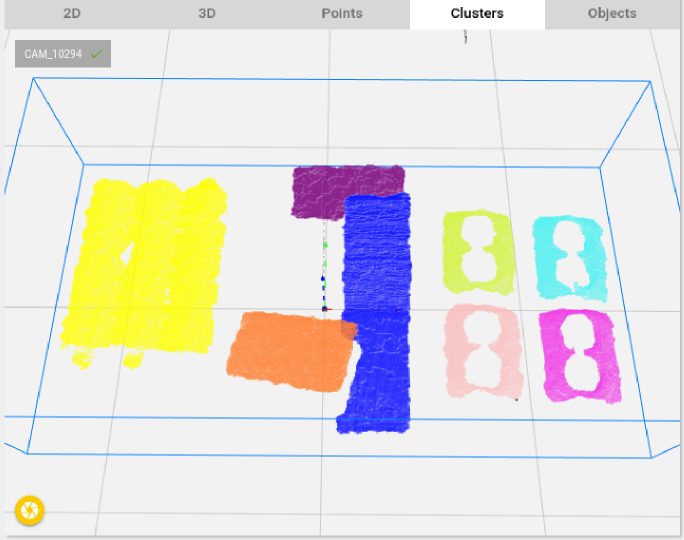Warning
You are reading the documentation for an older Pickit release (2.0). Documentation for the latest release (4.0) can be found here.
How to choose the correct clustering preset
The clustering preset is an important parameter when using the detection engines Flex or Pattern. In this article an example of different clustering methods is showed and discussed. This example should help you chosing the correct setting for your application.
The scene below is used to explain the different clustering methods. In the scene there are 3 shampoo bottles next to each other, 4 boxes randomly on top of each other and 4 electrical plug shieldings separated from each other. A snapshot of this scene can be downloaded here.
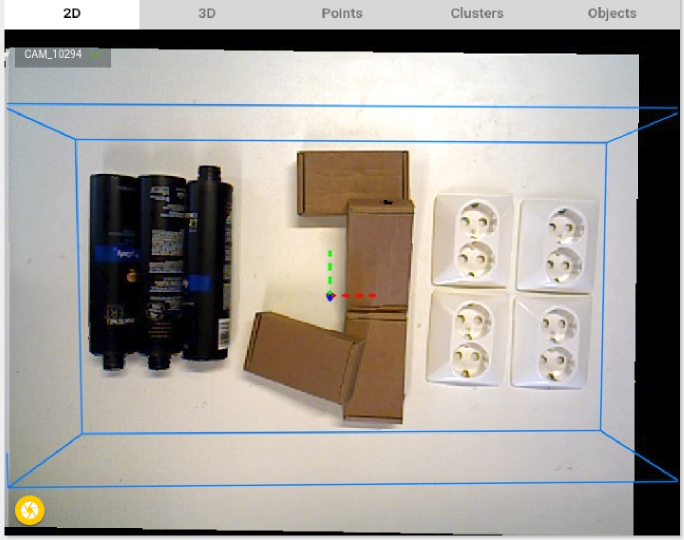
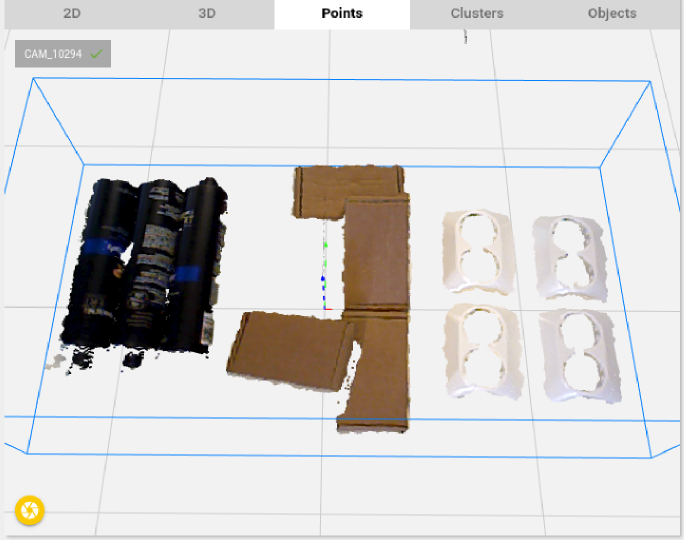
Touching parts
These methods look at the change of surface. If a surface change is too abrupt it is considered as a separate cluster. On the image below the results of this clustering method is shown. For the shampoo bottles three different clusters are formed which is good. For the boxes, the 2 boxes that are aligned but under an angle are not clustered apart. The transition of the surface is to smooth to filter them apart. For the electrical plug shieldings multiple clusters per part are formed, which is not good.
Best results for:
Rounded parts
Cylinders: bottles, gas springs, steel bars,..
Balls: tennis balls, oranges,..
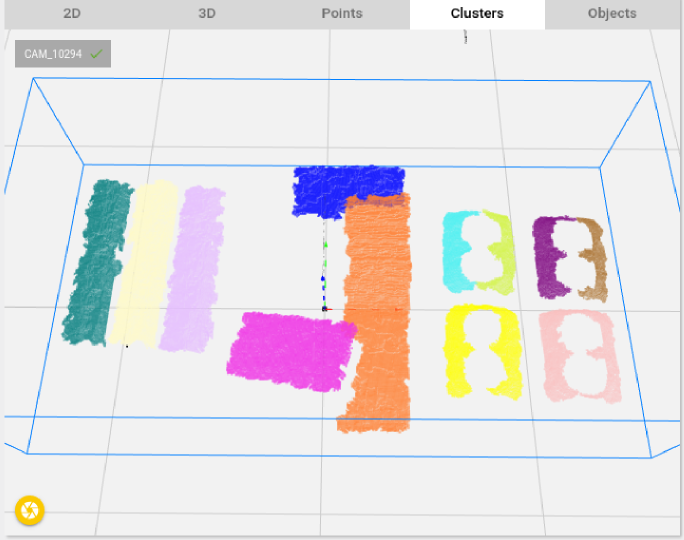
Plane Based Clustering
This method looks for flat surfaces in the scene. If two surfaces have a different orientation they are considered as separate clusters. On the image below the results of this clustering method is shown. For the shampoo bottles multiple clusters are formed, which is not good. For the boxes all of the boxes are clustered apart andno points are missing at the edges of the surfaces, which is good. For the electrical plug shieldings multiple clusters per part are formed, which is not good.
Best results for:
Flat surfaces
Boxes
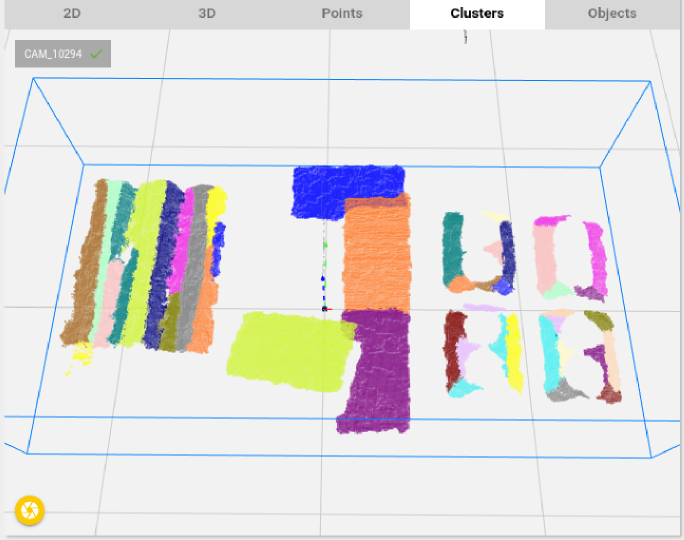
Non-touching parts
This method groups points into cluster that are close together. Objects are clustered apart if there is a physical gap. On the image below the results of this clustering method is shown. For the shampoo bottles one big cluster is formed, which is not good. Also the two aligned boxes are not clustered apart. For the electrical plug shieldings, which are positioned separated, one cluster per part is formed, which is good.
Best results for:
(Complex) shapes that are separated
